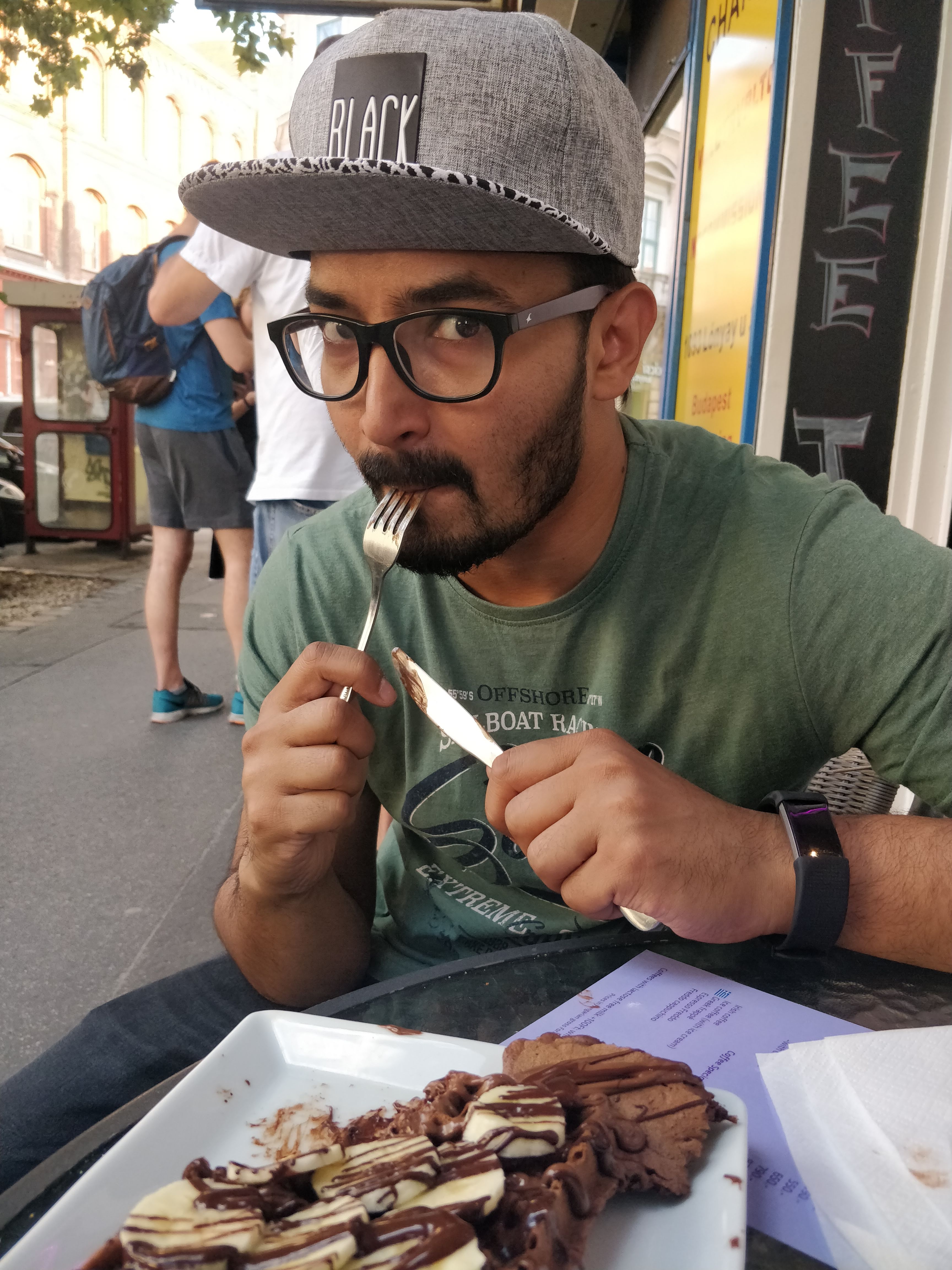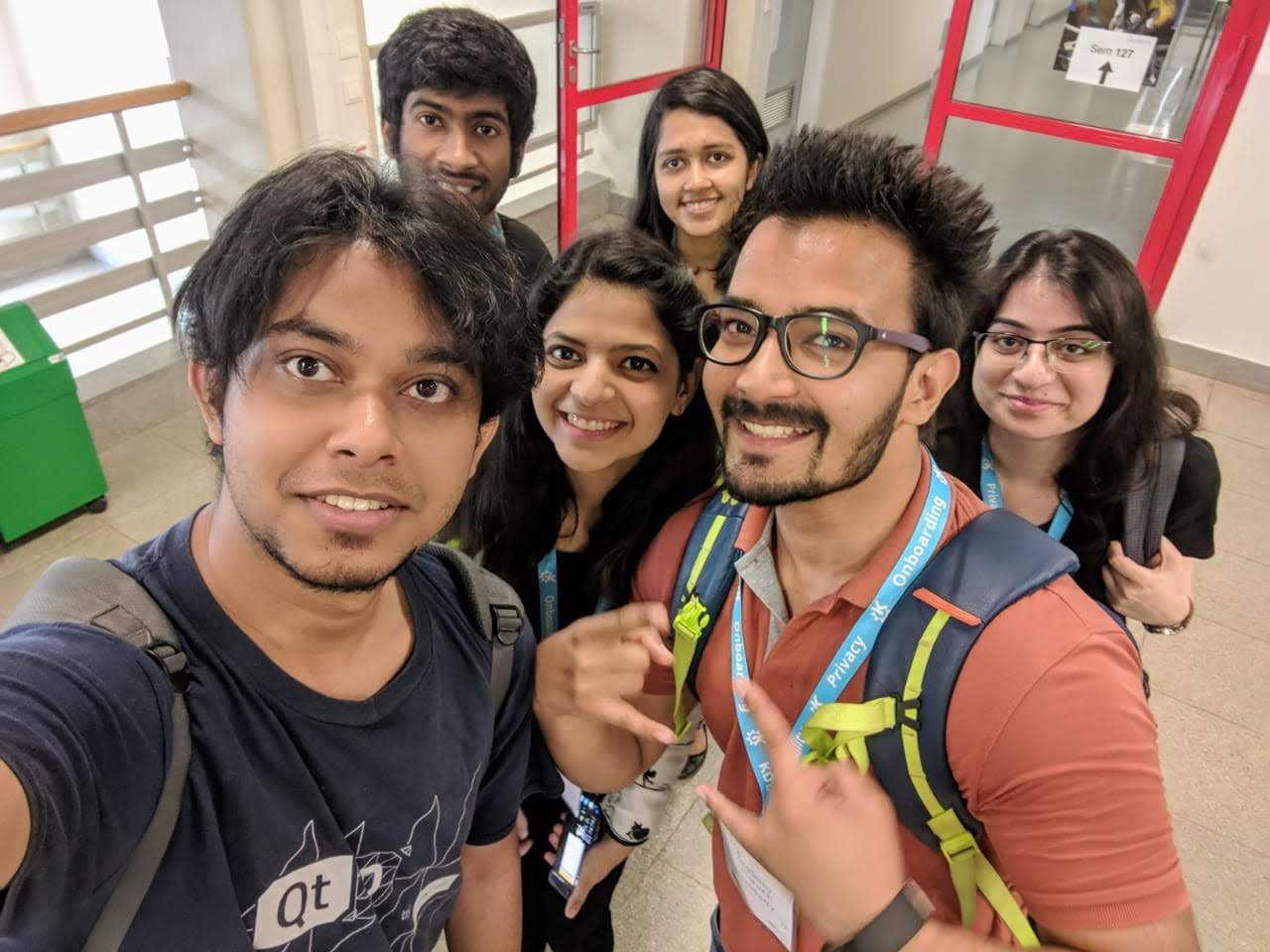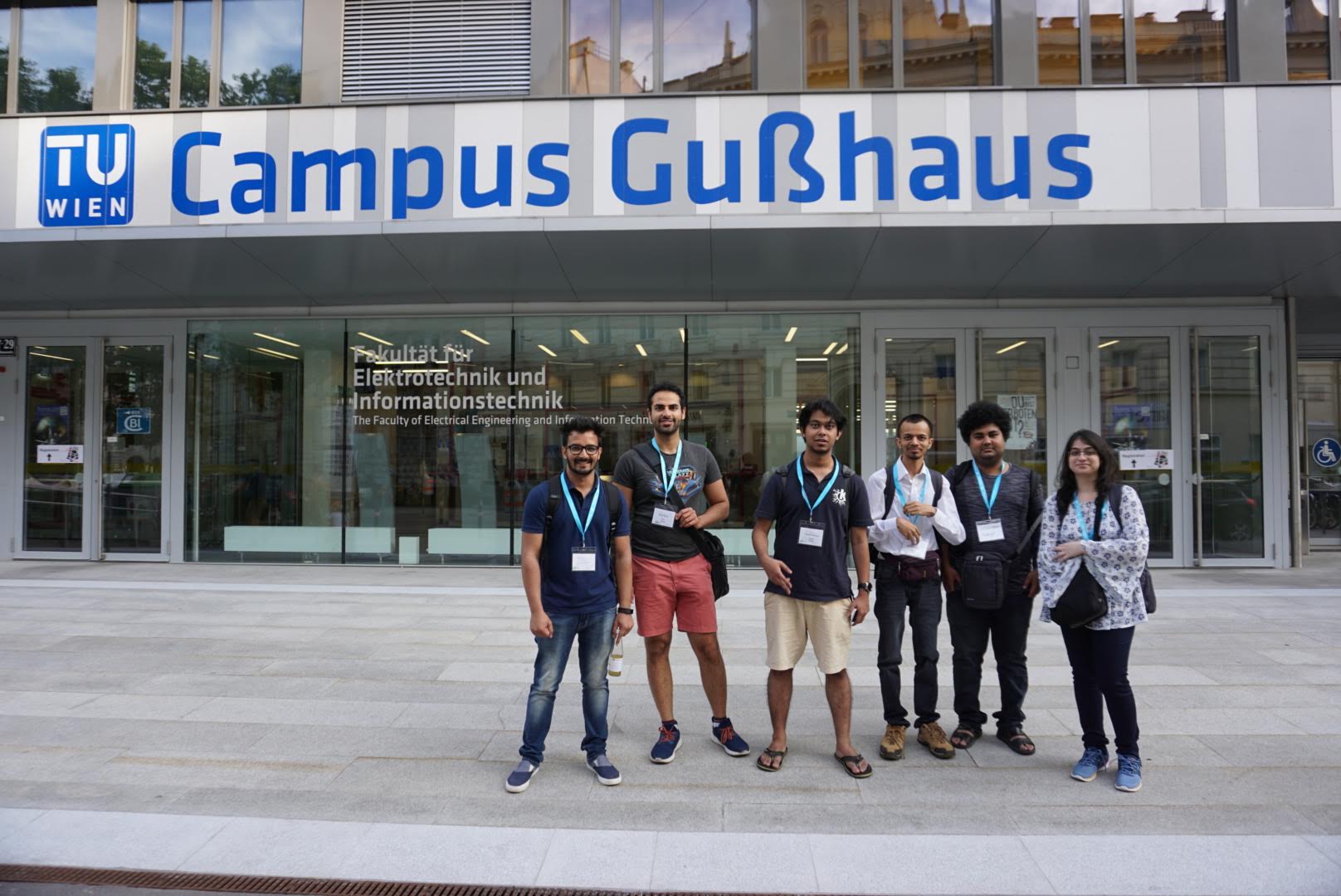This July I got the opportunity to be a part of the biggest gathering of KDE developers - Akademy 2018. The akademy conference gathers hundereds of KDE developers together for almost an entire week.
It was held at TU Wien (Techincal University of Vienna) in the beautiful city Vienna, Austria from Saturday 11th to Friday 17th August 2018.
The akademy conference as usual has 2 days of talks by KDE contributors followed by the rest of the week comprising of BoF informal sessions, team outing and a lot more.
Talk: Containerizing KDE
At the conference Anu amazing enough to let me be a part of her talk. You should definitely go subscribe to Anu’s blog. We presented a talk regarding containerization of KDE applications.
In this talk we discussed various containerization techniques. We also demonstrated how containerization of KDE can be useful for developers and end users.
Overview
Setting up a development environment for a software can be time-consuming and at times a bit confusing. There are many libraries and packages that need to be installed and which might also cause conflict with the existing system packages. There are various ways to containerize an application, we discussed two major approaches - Docker and Flatpak.
Docker
Docker helps a developer by setting up a sandboxed development environment in a container which can be used for debugging, testing or developing a new feature. You can run multiple such environments in parallel e.g. stable & development environment.
Installing Docker
sudo apt-get install \
apt-transport-https \
ca-certificates \
curl \
software-properties-common
curl -fsSL https://download.docker.com/linux/ubuntu/gpg | sudo apt-key add -
sudo add-apt-repository \
"deb [arch=amd64] https://download.docker.com/linux/ubuntu \
$(lsb_release -cs) \
stable"
sudo apt-get update
sudo apt-get install docker-ce
sudo docker run hello-world
You can checkout more specific information on docker website here
Running KDE applications using docker
KDE Neon is a project focused on building tooling to make it easy to run KDE applications on docker.
wget https://cgit.kde.org/docker-neon.git/plain/neondocker/neondocker.rb
chmod +x neondocker.rb
sudo gem install docker-api
sudo apt-get install ruby-dev
./neondocker.rb okular
You can find out more information here about KDE Neon Dockerization.
Flatpak
Flatpak provides a sandbox environment in which users can run applications in isolation from the rest of the system. Flatpak is tightly coupled with linux and mainly focuses on bundling and sandboxing of desktop applications on linux hosts.
Installing Flatpak
sudo add-apt-repository ppa:alexlarsson/flatpak
sudo apt update
sudo apt install flatpak
sudo apt install gnome-software-plugin-flatpak
flatpak remote-add --if-not-exists flathub https://flathub.org/repo/flathub.flatpakrepo
# sudo reboot now
You can checkout more specific information on flatpak website here
Running KDE applications using flatpak
There is a wide list of KDE applications available via flatpak. To run an application like Okular, you need to run just one command:
flatpak remote-add --if-not-exists kdeapps --from https://distribute.kde.org/kdeapps.flatpakrepo
flatpak install kdeapps org.kde.okular
You can find out more information about KDE and Flatpak here
Come be a part of the KDE community :)
Coding is not the only way to contribute to KDE.  You can find out many many different ways in which you can contribute to KDE. I can name like 10 things:
You can find out many many different ways in which you can contribute to KDE. I can name like 10 things:
- Bug Reporting
- Bug Triaging
- Donation
- Translation
- Visual and Human Interface Design
- Documentation
- Promotion
- Accessibility
- Development
- Add your project to KDE Incubator
Checkout the community wiki for more information about contributing to KDE.

